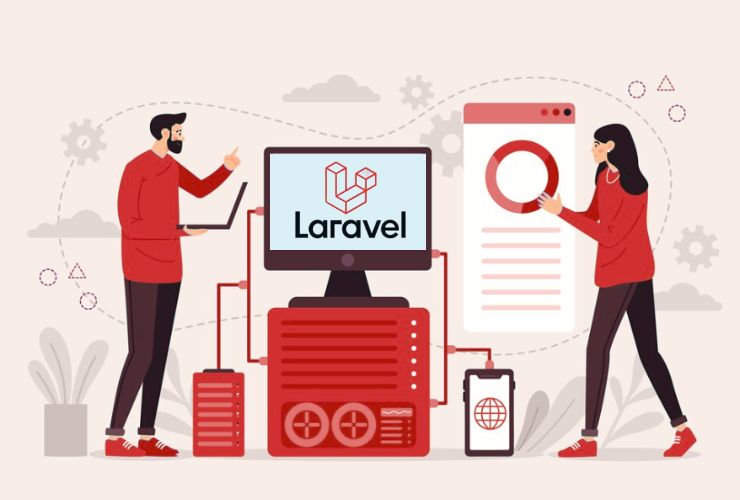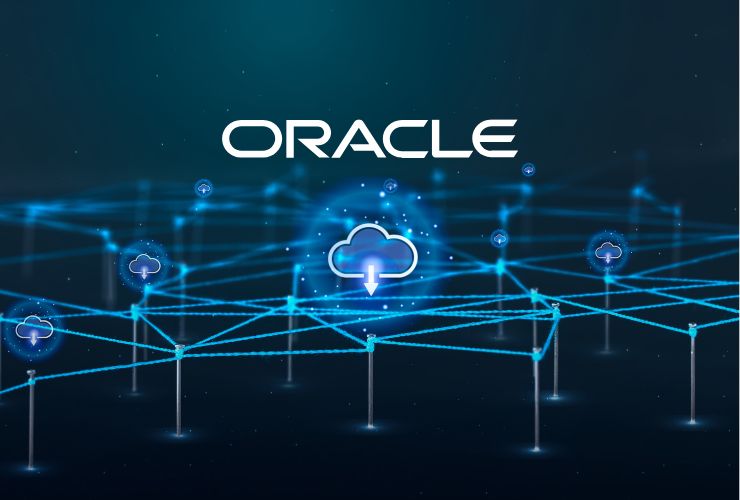Laravel has become one of the leading PHP frameworks providing a robust, elegant, and developer-friendly web application development platform. With its rich feature set, scalability, and security, Laravel is the top choice for businesses and developers who are looking for high-performance web applications.
In this blog, we will be writing about why Laravel is the best PHP web framework and how it makes the development process easier along with providing the best functionality.
1. Elegant Syntax and Developer-Friendly Features
Laravel offers a clean and elegant syntax that makes coding easy and improves readability. The framework is made to enhance developer productivity without compromising code maintainability.
Laravel’s native Blade templating system allows developers to build dynamic, reusable, and lightweight templates using straightforward syntax. The Artisan CLI performs tasks such as database migrations, unit testing, and custom commands, freeing developers from tedious manual labor. The Eloquent ORM further streamlines database interactions with expressive syntax, simplifying querying and data manipulation.
By simplifying development, Laravel enables developers to concentrate on writing features instead of boilerplate code. This not only saves time on development but also enhances maintainability and readability of the code.
2. Strong Security Features
Security is an important factor in web development, and Laravel has in-built security features that help safeguard applications against cyber attacks.
Laravel provides protection from typical security attacks like cross-site request forgery (CSRF) attacks, SQL injection attacks, and cross-site scripting (XSS). It prevents SQL injection attacks and ensures database safety using Eloquent ORM and prepared statements.
Secondly, Laravel’s native authentication and role-based access control system enable simple implementation of user authentication, permission management, and protection of sensitive information. The framework is also capable of encryption and hashing through bcrypt hashing and AES encryption, which prevents unauthorized access to user data.
Through these security features, Laravel enables developers to create secure applications without the need for advanced security knowledge.
3. MVC Architecture for Improved Code Organization
Laravel employs the Model-View-Controller (MVC) framework, which reinforces separation of concerns so that it’s simpler to control and grow applications.
In following the MVC model, Laravel has a proper process of development while keeping the business logic out of the presentation layer. It creates more organizational management, makes it simpler to debug, and improves code reuse efficiency.
With MVC, multiple teams are able to work separately on various parts of the application without impacting the work of one another. This not only enhances collaboration but also streamlines large-scale web application development.
4. Database Migration and Management
Laravel makes database management easy through its migration system so that databases can be easily changed and synchronized between different environments.
Database migrations in Laravel enable developers to version database structures, and in case of changes, they can be rolled back. The Seeder and Factory support provides developers with an efficient means to create test data, which supports application testing and development.
Laravel’s Query Builder and Eloquent ORM enable developers to easily interact with databases without needing to write intricate SQL queries. This enhances performance and scalability while lowering development effort.
With Laravel’s database management functionality, developers are able to maintain data consistency and manage database updates with ease.
5. Scheduling Tasks Integrated
The task scheduling component of Laravel, built on top of Laravel Scheduler, enables programmers to schedule regular tasks like sending emails, purging the database, and reports.
Unlike using third-party cron jobs, Laravel allows for task scheduling in its application flow. Programmers can specify scheduled tasks in an expressive, fluent syntax, thus simplifying automation of repetitive tasks.
This aspect improves productivity by minimizing the involvement of human beings and increasing server resource efficiency, allowing problem-free application running.
6. API Building and RESTful Support
Laravel simplifies building APIs through innate RESTful API support and improved data processing.
With API resources, Laravel ensures easy use of structured and regular API returns. Laravel offers mechanisms like Laravel Passport and Laravel Sanctum, supporting token-based safe authentication for API requests.
Rate limiting functionality guards APIs against abusive requests, blocking unauthorized access and distributed denial-of-service (DDoS) attacks. Laravel’s API development features make it a great solution for developing modern, scalable web services and microservices architectures.
7. Robust Community and Support
Laravel boasts a well-established developer community and large ecosystem, with quick access to solutions and support from experts.
Laravel ecosystem comprises many tools and extensions, including Laravel Forge for server management, Laravel Vapor for serverless deployment, and Laravel Nova for admin panels. The extensive number of Laravel packages and third-party integrations also make development easier through pre-existing solutions for regular functions.
With an extremely active community, developers can access voluminous documentation, tutorials, and forums for troubleshooting and best practices, reducing development hurdles and ensuring uninterrupted improvement of applications.
8. Scalability and High Performance
Laravel is well-suited to support high-traffic applications with optimized performance-boosting features and caching.
Laravel includes an in-memory caching facility, which supports any of the numerous cache drivers available, including Redis and Memcached, that enhance application performance and reduce server load. Database query optimization and indexing techniques aid in faster data retrieval and response times.
Additionally, Laravel’s support for job queues and event broadcasting assists in queuing background jobs, reducing lag, and improving real-time application performance.
By taking advantage of Laravel’s performance capabilities, companies can create scalable applications that cope with growing user loads without sacrificing speed and responsiveness.
Conclusion
Laravel is the best PHP framework due to its strong features, security, and simplicity. From building a simple website to building a large-scale enterprise application, Laravel allows it to become simpler to develop an application without compromising on performance, security, and scalability.
With its elegant syntax, MVC architecture, security features, and vast ecosystem, Laravel empowers developers to build high-quality web applications efficiently. Its extensive community support and growing ecosystem make it a reliable choice for modern web development.
If you’re looking for expert Laravel development services, our team can help you build a custom, high-performance web application tailored to your business needs. Contact us today!
Contact Us Today













 Database Development
Database Development












































